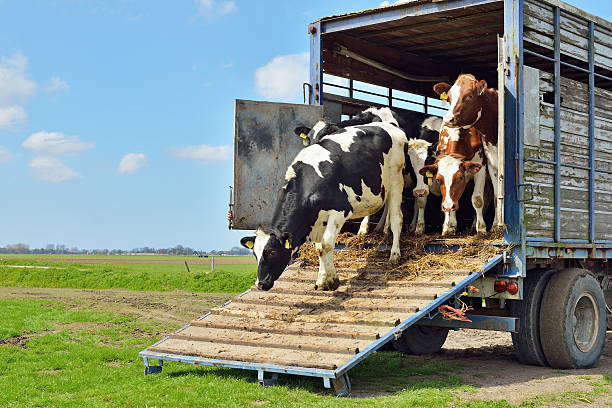FMCSA Clarifies Agricultural Commodities and Livestock Definitions for HOS Regulations
The Federal Motor Carrier Safety Administration (FMCSA) will be publishing an interim final rule to elucidate agricultural definitions. These changes in the hours of service regulations are to make enforcement more consistent. Terms that will be better outlined include “agricultural commodities”, “livestock” and “non-processed food”.
The current definition for “agricultural commodity” is “any agricultural commodity, non-processed food, feed, fiber or livestock”. The updated definition will be “horticultural products at risk of perishing, or degrading in quality, during transport by commercial motor vehicle, including plants, sod, flowers, shrubs, ornamentals, seedlings, live trees and Christmas trees.”
For the definition of “livestock” is “cattle, elk, reindeer, bison, horses, deer, sheep, goats, swine, poultry (including egg-producing poultry), llamas, alpacas, live fish, crawfish, and other animals that are apart of a foundation here (including dairy producing cattle) or offspring.” This definition is being expanded to also include “insects, and all other living animals cultivated, grown, or raised for commercial purposes, including aquatic animals.”
“Non-processed food” definition will be update to “food commodities in a raw or natural state and not subjected to significant post-harvest changes to enhance shelf life, such as canning, jarring, freezing or drying. The term ‘non-processed food’ includes fresh fruits and vegetables, and cereal and oilseed crops which have been minimally processed by cleaning, cooling, trimming, cutting, chopping, shucking, bagging, or packaging to facilitate transport by commercial motor vehicle.”
These changes become effective 15 days after being published in the Federal Register. FMCSA is asking for public comments to be submitted by December 24, 2020.
Current rules will remain the same for drivers hauling agricultural commodities. Drivers hauling within 150 air miles of their starting location during harvest and planting seasons, as defined by each state, are exempt from hours of service (HOS) regulations. Livestock drivers are exempt from the 30-minute break rule when livestock are being hauled.

